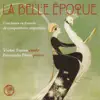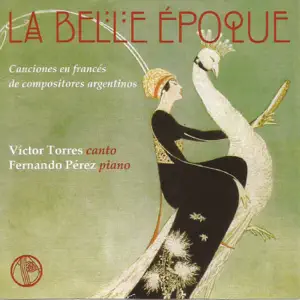


Acerca de Héctor Panizza
Born Héctor Panizza, this conductor, a Metropolitan Opera mainstay, was known outside his native Argentina as Ettore Panizza. Trained in Italy, he established a name on the Continent, in England and in South America, before becoming an important figure in opera heard in the United States. As a composer, Panizza wrote several operas that had brief currency in both Italy and Argentina, but that later passed into relative obscurity.nn Born to Italian parents, Panizza exhibited a keen interest in music from his earliest years. His passion was to be a composer, but, realizing that a better living was waiting in a conductor's career, he chose to devote himself at least equally to the baton. His father, the Italian cellist Giovanni Grazioso Panizza, was his first teacher. Upon manifesting a clear talent for music, Panizza was sent to Milan to pursue his studies at the conservatory, attending between 1887 and 1891, and again between 1895 and 1898. He worked with Vincenzo Ferroni in composition, Giuseppe Frugatta in piano, and Amintore Galli in harmony. While at the conservatory, he was called upon to conduct the institution's orchestra and when he graduated, it was with degrees in composition and piano and a first prize in the former category. His official debut as conductor took place at Savona. From 1898, Panizza served as assistant conductor at Rome's Teatro Costanzi, often leading performances in addition to coaching singers. At first, his composing followed a parallel path. In 1897, a student cantata was given a professional performance in Buenos Aires under the direction of Mascheroni, under whom Panizza would soon serve in Rome. Medioevo latino, a lyric triptych, was performed in both Italy and Buenos Aires (1905), Arturo Toscanini conducting the Argentinean production.nnBefore the new century's first decade had ended, however, Panizza determined that his composing would take secondary position to his rising career as a conductor. Engagements came quickly, one upon the other, and a successful debut at Covent Garden in 1907 kept him returning over seven more seasons. The London critics felt that Panizza's work, while it didn't quite approach that of the best Italian conductors, was nonetheless well above average, sufficiently so to make his presence welcome. Likewise, his conducting at La Scala, beginning in 1916, drew the attention of Toscanini, who later appointed him his assistant in Milan for the decade beginning in 1921. During his years at La Scala, Panizza also led symphonic concerts with the theater's orchestra and made guest appearances in such musical centers as Paris, Vienna, Buenos Aires, and in several Spanish venues. From 1922 to 1924, the conductor was a member of the Chicago Opera Company, kept busy leading La bohème, L'Africaine, Rigoletto, Lakmé, Martha, Thaïs, Dinorah, Otello, Cléopâtre, La Juive, Il barbière di Siviglia, La traviata, and La forza del destino. In 1934, Panizza succeeded Tullio Serafin as principal conductor of the Metropolitan Opera's Italian wing. Panizza's debut leading an opening night performance of Aida met with approval from critics with Olin Downes praising the conductor's "stinging, dramatic accents and throbs of color." W.J. Henderson found Panizza "a fine musician with a keen comprehension of what would be telling in a theater." The conductor stayed for eight seasons, leading 231 performances of 26 operas, many of them outside the Italian repertory.
Discografía de Héctor Panizza
1 disco

Ponchielli: La Gioconda (1939)
2012
Nosotros
Notas
